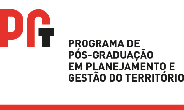Banca de DEFESA: EDUARDO ABRAMOWICZ SANTOS
Uma banca de DEFESA de MESTRADO foi cadastrada pelo programa.DISCENTE : EDUARDO ABRAMOWICZ SANTOS
DATA : 23/08/2022
HORA: 10:00
LOCAL: modo remoto
TÍTULO:
SQUAT BUILDINGS UNDER THREATS: PRACTICES AND JUDICIAL INSTITUTIONS IN THE (IN)DEFINITION OF THE (IN)FORMAL IN MIGRANT HOUSING
PÁGINAS: 200
GRANDE ÁREA: Ciências Sociais Aplicadas
ÁREA: Planejamento Urbano e Regional
SUBÁREA: Serviços Urbanos e Regionais
ESPECIALIDADE: Aspectos Sociais do Planejamento Urbano e Regional
RESUMO:
The aim of this study is to understand to what extent the law affects the dynamics of squat buildings constitute by migrants and non-migrants, analyzing the way that the law operates, constituting circuits considered informal by the State, how such dynamics work and are organized with the perspective of eviction and whether they have the ability to affect the outcome of the lawsuit. The analyzes are made from two squat buildings in the city of São Paulo, Vila das Belezas, in the Vila Andrade neighborhood, and 21 de Abril, in the Brás neighborhood. The trajectories of the residents, the dynamics with the perspective of eviction during the Covid-19 pandemic and the agents and institutions that start to orbit the locality were followed, questioning the role of law and legal action in constitution of these dynamics. The research material is composed of lawsuits, trajectories of some residents of this localities, semi-structured interviews and field research carried out from the action research.
MEMBROS DA BANCA:
Presidente - Interno ao Programa - 1734923 - VANESSA ELIAS DE OLIVEIRA
Membro Titular - Examinador(a) Interno ao Programa - 2265555 - LUCIANA NICOLAU FERRARA
Membro Titular - Examinador(a) Externo à Instituição - VERA DA SILVA TELLES - USP
Membro Suplente - Examinador(a) Interno ao Programa - 1545979 - FRANCISCO DE ASSIS COMARU




